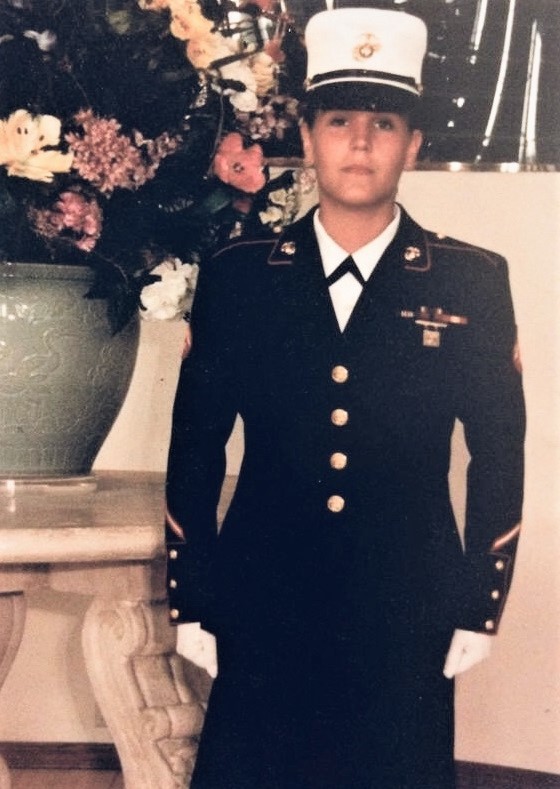Dani Grant is a human resources manager with Noltex, LLC and a veteran of the U.S. Marine Corps. She also chairs the PetrochemWorks Workforce Development Committee.
PetrochemWorks: What was your job in the military/how long did you serve?

Dani Grant: I started off as a service record book (SRB) clerk, 0121. I made entries into personnel files for troop movement, duty station changes, benefit adjustments for family changes/additions, recorded discipline, awards and training. Each Marine has his or her own SRB and it went with him or her from duty station to duty station whenever there was a transfer. I was an SRB clerk for three-and-a-half years. At that time, my MOS closed for reenlistments so I did a lateral move into legal. I went to my second Military Occupational School at MCSSS Camp Johnson North Carolina to learn a new skill – Legal Services. I spent the next four years as a legal services specialist where I recorded discipline actions, conducted investigations, processed discharges and attended court-martial proceedings. I spent a total of seven-and-a-half years in the Marine Corps between 1990 and 1998. I received an honorable discharge as a Sergeant, E-5.
PCW: How did you transition from the military to the petrochemical industry? How did you learn about the opportunity?
DG: After the Marine Corps, I used my GI Bill to obtain my bachelor’s degree in political science from Cleveland State University. I knew, with what I wanted to do, I was going to need a degree to be considered for a Management position. My husband, also a Marine, is from Texas and I am from Ohio; therefore, we lived in Ohio for a few years. We soon realized that the job market was much stronger in Texas and we moved in March 2008. This is when I got my first opportunity in the petrochemical industry. I had applied for a few human resources (HR) positions on Monster.com and within three months of moving here, I landed my first HR manager position with Texas Molecular. From there, I developed professional relationships with other industry professionals - very important! I cherish my network of like-minded professionals and friends; they have helped me with finding other opportunities in industry.
PCW: What has been your civilian career path after the military?

DG: My experience in the Marine Corps translated very smoothly to a career in human resources. I have been with Noltex for seven-and-a-half years, and I do almost the exact same things now that I did in the military. I have added responsibilities now as a manager, but the roots of my knowledge were started in the Marine Corps.
PCW: What do you love most about your career?
DG: First, I am a people person, a caretaker. I want to be a subject matter expert and strong resource for our employees and their families. Specifically, when dealing with benefits, there is a lot of information and many often feel overwhelmed. I strive to make benefits something that people understand and that they are well educated about them. Secondly, I have a passion for workforce development. The petrochemical industry has afforded me a great career and I love to help others find their pathway in, hoping for the same outcome for them. And lastly, as a veteran, I do what I can to assist other veterans in their search for a career in industry.
PCW: What advice would you give other veterans looking to get into the petrochemical industry – either home office or field jobs?
DG: First, find the degree or technical education tract that matches your experiences or likes. Second, expect to put in some work – you may not be offered the first few opportunities out of school, the competition is fierce. You’re going to have to make your job search part of your daily routine – set time aside for your career search. Third, take an internship, coop or part time job to get the experience you need for your future career. Last, don’t give up, some of you may find a career quick, others it may take some time – it can be a long process so just keep working at it!
PCW: What advice would you give other women looking to get into the petrochem industry?
DG: I don’t know how much different my advice would be for a woman than it is for a man. I would say that there is no longer a career a woman can’t pursue and become successful doing. There have been stereotypes that skilled trades careers are not a good fit for a woman but every day, women in our industry prove that statement wrong.